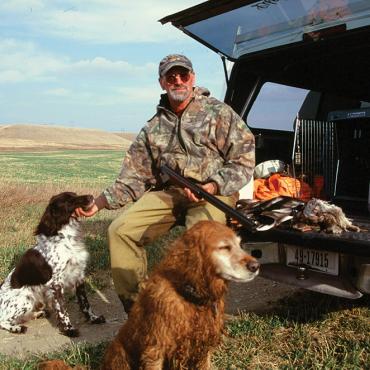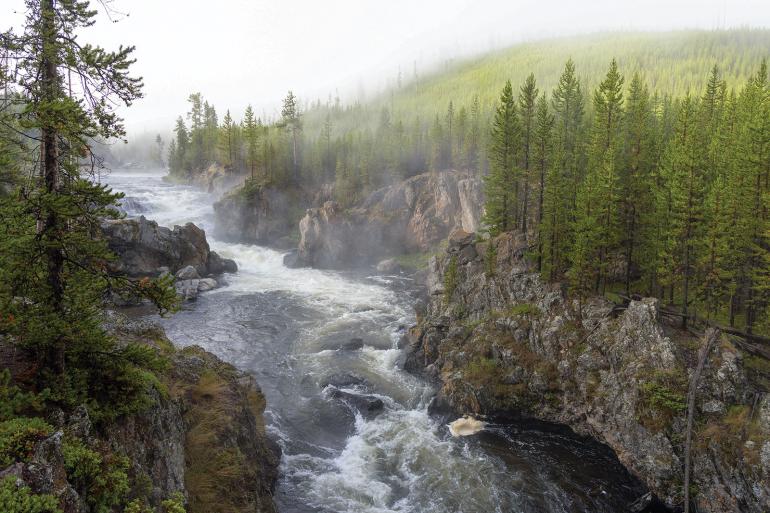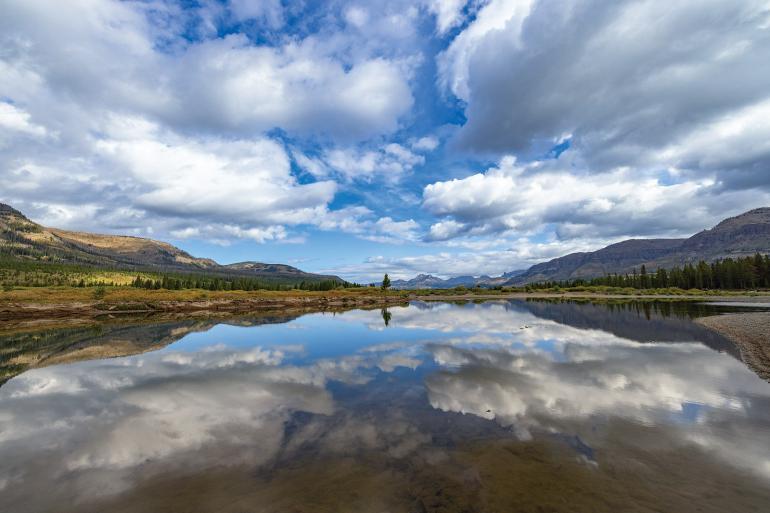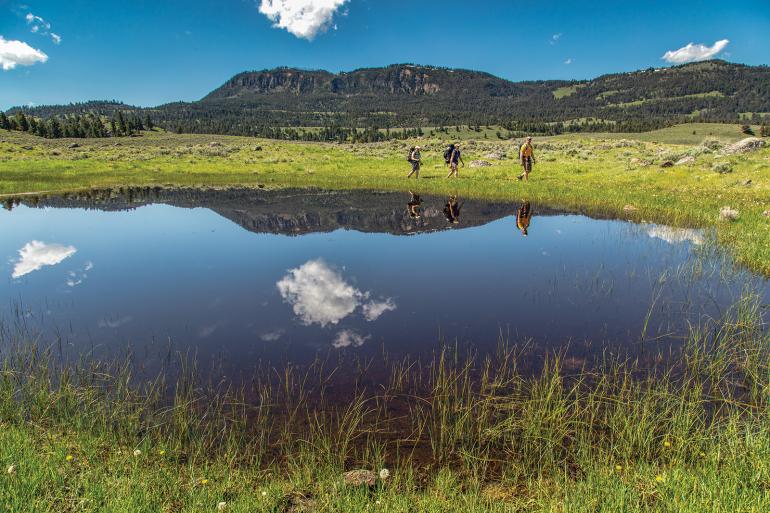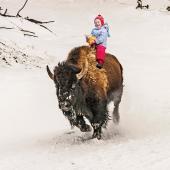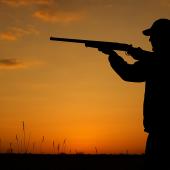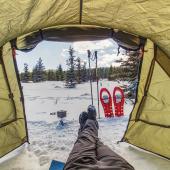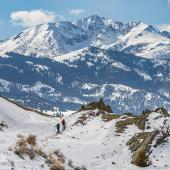Not All Who Wonder Are Lost
Maintaining a sense of awe in a frenzied world.
If you’ve gone wolf watching in Yellowstone, then you know the trick to finding these elusive creatures is not scanning wide-open landscapes, but rather, looking for the wolf watchers parked by the road. With Hubbel Telescope–sized optics and walkie-talkie intel on wolf movements, they are a guaranteed shortcut to a successful outing.
I did that recently, and ended up standing behind a couple, who, adorned head-to-toe in Cabela’s camo, were glued to their spotting scope. I asked what they were observing. In a deep southern drawl, the man replied, “wolf 327” (or some number, I can’t remember which). “He’s my favorite,” the man went on. “The wife here, she’s in love with 223” (or whatever number it was).
As if they were describing the lives of their children, they excitedly shared the life histories of these two wolves. Apparently, wolf watching is the wildlife version of NASCAR. Everyone has a favorite star.
Things change. Yellowstone and adjacent environs are no exception.
It was endearing. Here were folks who had come a long way, and probably spent a lot of money, in ecstasy as they stoically observed one of our iconic wildlife species. I have no idea what their politics were. Or whether they were supporters of environmental groups. All I know is, they were captured by the magic of Yellowstone to a degree that matched—maybe even rivaled—that of us locals.
Early in its history, Yellowstone was dubbed “Wonderland,” though admittedly for promotional purposes. Nevertheless, it was an appropriate moniker—not only for Yellowstone, but for our entire region. Can you imagine being one of the early visitors to the Park? Without preconceived notions of what you were going to experience, the geysers, hot springs, waterfalls, canyons, wildlife had to elicit a sense of intense wonderment. And the scenic mountains, clear-flowing rivers, and broad valleys of the surrounding landscape were icing on an already exquisite cake.
But things change. Yellowstone and adjacent environs are no exception. Stuck in traffic before even entering the Park, opening the paper to see yet another subdivision approved, not finding a parking spot at a trailhead—our ability to maintain a sense of wonderment is being tested. And even if one can ditch the crowds, for whatever reason, many of us feel compelled to march, run, bike, or otherwise race through this landscape as if we are in some sort of competition. And maybe we are. Life is short. Gotta get all the gusto you can.
My fear is that in this frenzied approach to our outdoor pursuits, we are losing, or diminishing our sense of wonderment. Sure, we love taking photos from the top of a peak we’ve bagged, or of a fat rainbow successfully netted. And we are thankful for these experiences. But wonderment is something different.
Wonderment is indescribable awe. It can leave you speechless, or at least speaking in hushed tones. You might even put down your phone and just reverently observe the wildland setting in front of you, deeply grateful for that opportunity. Realizing not everyone has it.
My fear is that in our frenzied approach to our outdoor pursuits, we are losing, or diminishing our sense of wonderment.
Some say outdoor recreation leads to greater support for conservation. I’m not so sure about that. In fact, there is research that backs me up on my contrarian perspective. What it seems to be leading to is a demand for more human access. And access is not conservation.
A sense of blissful wonderment, on the other hand, can transcend our more ego-driven desires, and maybe even cut to the core of our soul—catalyzing that feeling of true contentment and oneness with our environment. Who wouldn’t want to protect that? And wonderment can help us to “be here now,” as wellness gurus recommend.
I would not dispute those who say that ripping down a steep slope on skis or a mountain bike, picking your way up a 5.10 rock face, or successfully navigating a class IV rapid doesn’t also thrust you into the here and now. However, in those instances you are narrowly focused on what’s in front of you. Everything else is a blur. On the other hand, peacefully listening to a roaring rapids roar, observing a pika hoarding grasses in the talus, or watching pollinators work a wildflower meadow can expand our awareness to the point of revelation—a transformative outdoor experience. And it can foster a non-consumptive appreciation for the intrinsic value of nature. What I mean by that is just loving it for its own existence—whether we are directly utilizing it or not.
In response to destructive resource exploitation, we have sought to monetize the natural world. We have calculated the dollar value of wild trout, wolves, scenic landscapes, not to mention a whole host of outdoor-recreation activities. The hope was that by demonstrating the significant economic impact of outdoor recreation and nature-based activities, we could use that as ammo for opposing things like mines, energy development, dams, etc.
As outdoor enthusiasts, maybe it’s time for a little self-reflection—a pause, if you will—to assess the status of our sense of wonderment of the natural world that is our playground.
And to some degree, maybe a great degree, we have been successful. And many of the more destructive public-land use practices have been curtailed. The flipside, however, has been the dramatic expansion of the outdoor industry, recreation facilities and infrastructure, and of recreationists themselves—not to mention the garnering of considerable political power that now sometimes pushes against protective land management designations such as Wilderness. There’s a growing sense that the old saying, “Meet the new boss, same as the old boss,” can apply to outdoor recreation.
As outdoor enthusiasts, maybe it’s time for a little self-reflection—a pause, if you will—to assess the status of our sense of wonderment of the natural world that is our playground. Maybe we could learn something from that camo-clad couple who were in tears as they watched their totem wolves being, well, wolves. I got the sense that they were perfectly content keeping their distance and trying hard to not disturb their visual quarry in any way. And I bet that they not only love wolves, they also love the Park. And they would restrain themselves from doing anything to harm it. Can we say the same thing about our recreational pursuits? Restraint seems to be in short supply these days.
What is not in short supply, for those who take the time to really experience it, are awe-inspiring landscapes, the wonderment of exquisite plant and animal interactions, and the ability of a truly wild place to expand our consciousness. “The world is full of magic things, waiting for our senses to grow sharper,” mused poet WB Yeats. What are we waiting for?

